TALKING NOISE : An Interview w/ Michael Morley (of GATE & THE DEAD C)
Musician Michael Morley is from Port Chalmers, New Zealand. In the mid 80s he was part of the duo Wreck Small Speakers on Expensive Stereos. Later that decade he formed the band that he’s most known for, The Dead C, with Bruce Russell and Robbie Yeats. They came to the attention of savvy U.S. record buyers through a number of good-to-amazing records on the Siltbreeze label. Morley has also kept busy with solo records, under the name of GATE, and collaborations such as Tanaka-Nixon Meeting (feat. Danny Butt) and Two Foot Flame (w/Peter Jefferies and Jean Smith of Mecca Normal).
The last few years have been good to fans of Michael Morley’s work. The Dead C released a new lp, Secret Earth, toured the U.S. and have had their early releases reissued in handsome dbl gatefold editions by Ba Da Bing. And now Morley has released his first Gate album in several years. The vinyl-only, A Republic of Sadness finds the artist using a laptop and electronic dance beats. This may sound like a dubious proposition, but once Morley’s voice comes in, any worries of YACHT 12” remixes are set to rest.
I recently had the privilege to correspond with Michael Morley to discuss the new Gate lp, his work with The Dead C, and whether or not what he creates is even “rock music”.
–Alex Parrish
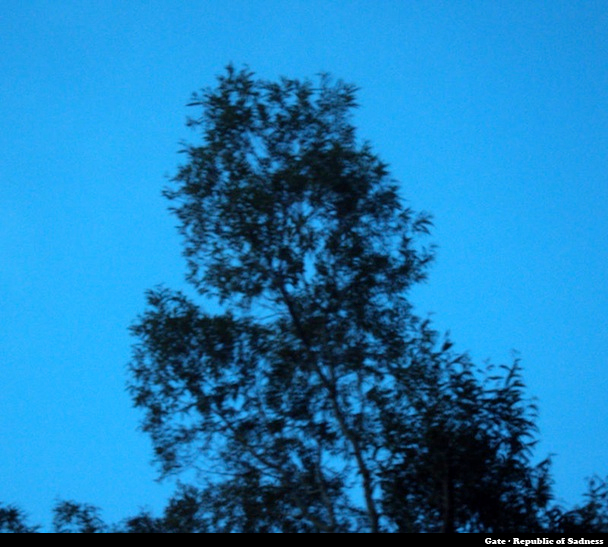
AP: Your new LP, A Republic of Sadness, is different but it’s not that different. It’s obvious right away who’s singing. You’ve got some drum programs going on, but no one is going to think it’s Bjork. A few of the tracks would sit nicely next to stuff on Dew Line. When you’re making a record do you give much thought as to how it will sound compared to your other albums?
MM: No, not initially, that might come after, when the track listing is being sorted out and pieces are being cut together. The recordings take place in a continuous universe, there is no room to consider things like a format release. I spent 15 months listening to the recordings that make up the sessions around ARoS, there has been a lot of editing and consideration applied to each track, but not in their relation to any previous work.
AP: I don’t think you were going for this, but your new album did get me thinking about it, and that’s that it seems like no one is too surprised/shocked/upset by a favorite artist taking a big left turn these days. At this point in the history of rock music, it’s normal for someone to make a record that may alienate a bunch of their fan base. There’s a rich history of this that goes back to Self Portrait and Metal Machine Music. Do you think people’s tastes have broadened, or do you think no one is really doing anything that risky in terms of pissing off their fans?
MM: I think people’s tastes are always broadening, I hope so? I considered that the record is risky because of the genre blending that is being played out, but I wasn’t trying to piss anyone off. It is an attempt at a critique of contemporary music, to ask questions about what we expect.
AP: At what times of the day did you record the vocals for A Republic of Sadness? I imagine it was first thing in the morning or right before bed. Also, was this recorded on a lap top? If so, did you do any of it outside of home? When I listen to it I imagine you nestling away in some park and working on the tracks.
MM: This was all recorded in my house with my machines, laptop, desktop, analog synthesizers, guitars, basses, and tape machines, usually very late at night or very early in the morning. It is an analog/digital wilderness. My view is trees and hills and harbour. I have very forgiving co-habiteurs; they are normally mostly asleep when I am recording or “have left the building“. Either way I seem to find time to concentrate on this stuff for a while. Once the recordings are made then the mixing and editing begins and this becomes an extended process now. The mixing of A Republic of Sadness took place in Port Chalmers and Paris from January – August 2009. Yes, nestling in a tree in my garden sometimes, looking at the blue sky and the undulating sea, but sometimes in a convent in Paris, negotiating language and culture, but always in summer, and dreaming about things that are impossible.
AP: So far it’s a record that I only want to listen to when I’m the first one up or everyone else is asleep. It’s funny how the listener experience parallels the creator experience. If I get a chance to listen to it in a convent I’ll let you know.
MM: I can’t imagine it really being played at a party to bring the mood up. It does appear to sound reflective. This is certainly a result of the rules I had in place about the way the vocals were to be recorded, and the narrative structure of the lyrics. The recording environment is one room. I am generally locked away in it at night, whispering into the microphone and blasting a large sound system. Convents are good, just like trees. Old and mysterious, great as a listening environment.
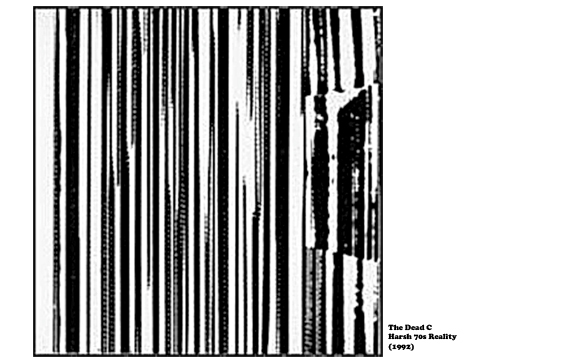
AP: Harsh 70s Reality is the greatest dbl lp of the 90s. True or false?
MM: It would be amazing to think this is true? In someone’s universe I am sure it is.
AP: The only competition it has, as I see it, is Royal Trux’s Twin Infinitives. Were there any other dbl lps that spun your head from that decade?
MM: Caroliner Rainbow Grace Blocks Used in the Placement of the Personality :
Rings on the Awkward ShadowThe Charalambides: Market SquareAphex Twin: Selected Ambient Works Volume IILabradford: PrazisonSun City Girls: Live from Planet BoomerangSonic Youth: DirtyRoyal Trux: Twin Infinitives
AP: I was sort of miffed by an interview you gave where you said that you weren’t sure if The Dead C is a rock ‘n’ roll/noise band and that you “might be an art project that refers to rock ‘n’ roll and noise and sound”. Seriously? What does Robbie Yeats think about that?
MM: Don’t be miffed! I am equally miffed by many things that relate to this subject matter. Rock music vs reality? Aren’t all bands essentially an art project? We seem to exist outside of the rock music world, despite using the tools that make it happen. I am not sure just why this appears to be the case? It may be our geographical isolation? We are constantly being made to explain ourselves and yet there is no sense of reciprocity, or the same sense of rigor from our detractors? Our lack of presence may have something to do with it?
Robbie thinks we are dicks when we spin this kind of bullshit, but he loves us and understands.
AP: When I listen to your records (and when I saw you guys in Seattle), it doesn’t sound like Yeats is playing drums in some art gallery or discussing literary theory with Mayo Thompson; the guy is too busy rocking out.
MM: Robbie always rocks out, art gallery or local club, it does not matter. You are correct. I am always amazed at his abilities as a drummer, he is an outstanding musician and very dear friend. He would prefer to pour me a cocktail than read me passages of Georges Bataille, although to be true he has done both. Essentially we are attempting to be a band that plays with instruments in a rock music framework but with additions that we deem appropriate to our collective discussion about the value of sound.
AP: If all bands are essentially art projects, then most of the bands on the indie rock landscape are “art projects that refer to rock and roll and noise and sound.” Right?
MM: Yes, I think so. It seems like a good idea to channel ideas about sound through the corrupting influence of rock music, it seems to have its own internal vocabulary, some people get it, some people don’t. It is ok to take either position.
AP: So, who are your detractors? Who are these people? What’s their problem? I can see some people not getting it back in the day, but at this point wouldn’t they concede. “Oh, I guess they were right. They knew what they were doing.“
MM: It is a strange world, the detractors are those who listen or not and choose to make comment from one single point of view in terms of Music and Sound. It must be difficult. It is one of the minuses of making the creative act public.
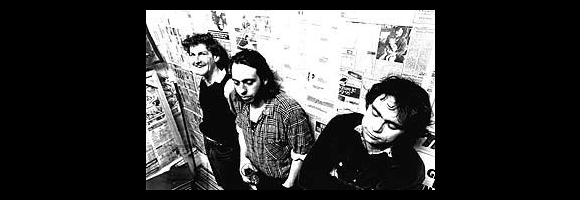
AP: I don’t know whether you’ll take offense at this but The Dead C always struck me as rather American sounding. It fits right in there w/ the first few Dinosaur lps and SST era SY. I used to have a job with an hour commute each way and Tusk was the main thing I listened to. It’s pretty solid driving music. I know other countries have automobiles, but the American self-concept (especially in the 20th century) involves automobiles and you see this pop up in American discussion of rock and roll. So, what do you think of that? Does The Dead C sound like an American band?
MM: I do not have any concept of how The Dead C fits into this idea of an American sound. We do in fact have automobiles in New Zealand and we have become proficient in their use. I like Tusk. It could be ideal driving music. We sound how we sound, certainly American music has influenced us, but this idea of American music is very broad and it allows for many detours and aimless wandering and getting lost.
AP: Do you ever think about alternative universe versions of The Velvet Underground? I have two: In the first John Cale played the saxophone instead of the viola. In the second they have a musical comedy tv show like The Monkees. I’m pretty sure Nico would be in it too and the boys in the band are always trying to go on dates w/her. What alt. universe version of the VU would you like to have seen?
MM: No, I do not think about alternative universe versions of The Velvet Underground. I would have liked to have seen and heard MacAlise, Cale, Conrad, Flynt, Morrison, Reed, and Tucker. And if television programmes offer more, perhaps not the alternative Monkees but maybe more Captain Scarlett and the Mysterons? There is a great photo of Andy Warhol looking like a marionette puppet from a Gerry and Silvia Anderson production. I would love to see The Velvets as marionettes in a recreation of the NYC Gymnasium Concert, April 1967.
AP: Sounds like Question Mark and the Mysterions would have been the perfect band to make a cameo on Captain Scarlet and the Mysterons.
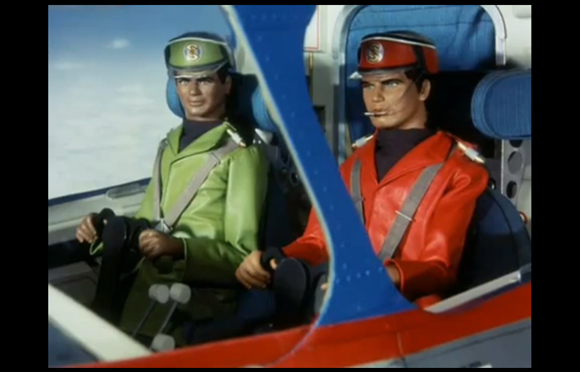
Is it a safe assumption that you’re more of a Cale-era VU fan than a Yule-era fan? That was the received wisdom for a long time: that the Cale stuff was the real deal and that they lost their edge when Yule joined. Then The Quine Tapes came out and people were really into the Yule stuff. It seems like they’re a band that’s big enough for the listener to go through lots of different phases. Is that your experience with the band? Or have you always had one favorite VU period?
MM: The first Velvet Underground I ever heard was when I was 15 years old, the 1969 Live double LP, that is all post-Cale. When I finally heard The Velvet Underground and Nico I finally got the whole excitement about their sound and who that band really were. White Light/White Heat just seems like one of those perfect records.
AP: Your history with the guitar includes periods where there are lots of songs and periods where there are decidedly less songs. Is song writing something that you naturally do? Is it hard not to do when you sit down w/ a gtr or a keyboard? Or is it like a switch for you? If that’s what you want to do, you just turn it on. But if not, you leave it off.
MM: The guitar is a fascinating instrument, i love the sound that it makes especially when coupled with other electronic sound devices. I think the electric guitar also forms a relationship with the amplifier, as this defines many things unable to be conveyed by language. Song writing is hard. It is sometimes successful and it is always difficult and fun. There is no switch for me.
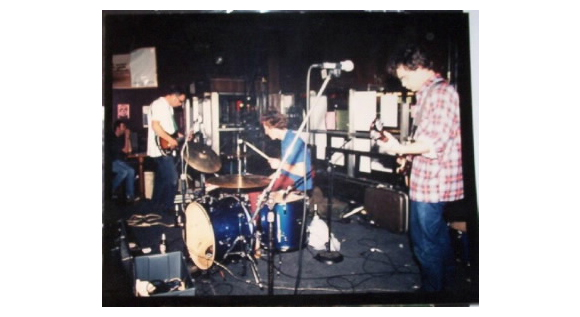
AP: As someone who missed out on most of the Flying Nun and pre-Matador distribution Siltbreeze stuff, the Ba Da Bing Dead C reissue series has been pretty amazing. Those first few records suggest so many different directions the band could have gone in. At this point does it seem like becoming a “total improvisation” band was something that was bound to happen? Or do you think it could have gone the other way?
MM: I don’t think we were all that interested in repeating ourselves, although it may be argued that this is all that we have done? The idea of writing songs, to be repeated as though we were robots has not held any appeal. Moving to the freedom of total improvisation is what is so risky about the records and shows that we make.
AP: I think one of the reasons I wondered whether songwriting is something you can just “turn on” is because there was a period there where The Dead C was kicking out classics left and right. If you look at the song list on the new singles comp, Tentative Power, it’s pretty solid.
MM: I am sure that was a phase.
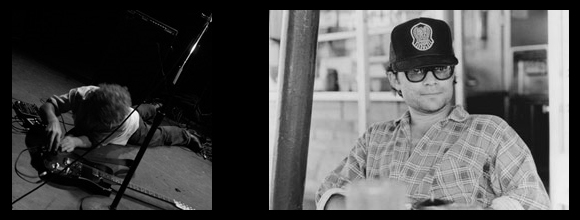
AP: What was the deal w/ your third Gate record that was supposed to come out on Table of the Elements? Did that ever happen? What a weird label. I suppose all record labels belong to a certain time, but that one really seems to belong to the mid 90s.
MM: I released The Wisher Table in 2000 on my own label Precious Metal. It had an edition of 500. It was not well received.
AP: Do you pay any attention to the current cassette culture? Do you have any thoughts on it? My own take on it is that it owes less to Xpressway and more to Ebay.
MM: No. There is a current cassette culture? I have ideas for making more cassettes but I have some other things that i have to do. That does sound weird though, and I understand the Xpressway vs Ebay context, but I am not exposed to such things.
AP: There are a lot of bands these days putting out deliberately small pressings of cassettes. A lot of this makes sense. They’re trying to make the supply meet the demand and cassettes have a longer life than CDRs. We have landfills dedicated to unwanted CDs. But there’s other cases where it seems like Ebay profiteering is the main purpose of the release (like when a ltd to 50 CS edition comes out, even though a month later it will come out on LP). That doesn’t seem like a case of cassette-as-appropriate-technology. Are there worse crimes? Sure. Is anyone getting rich? Not very likely. Still, I find it irritating. Maybe I am reading too much nobility into K, and Xpressway and 80’s cassette culture, but I always thought the point was that these artists were trying to find an appropriate means to get their music to the most people. The current cassette scene doesn’t seem to be of the same spirit.
MM: Cassette culture in the 1980’s in New Zealand was all about necessity, it was the means of distribution. Vinyl manufacturing had been scrapped and compact discs were imported from countries that controlled popular culture in the west. It was an economic and political gesture.
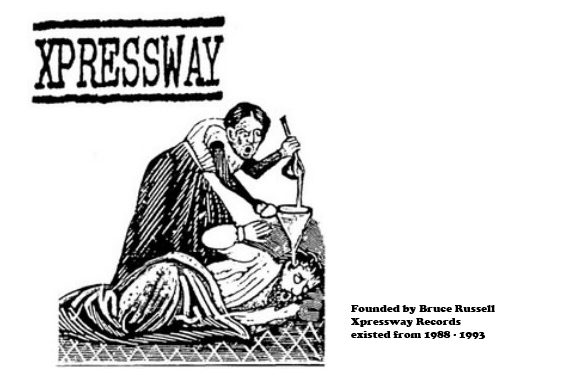
AP: Do you think you and Lee Ranaldo will ever get together again for another Gate record? Do you guys keep in touch? What about how these music documentaries always have interviews with Thurston but never w/ Lee? Does that irritate you too?
MM: I would love to play and record with Lee again, Yes we keep in touch. I don’t know of the music documentatries that you speak of? I don’t get to see any contemporary music documentaries.
AP: Was it weird to have David Lester fill in for you in the U.S. touring version of Two Foot Flame? Especially with the same three people then playing as Mecca Normal on the same bill? Obviously Lester’s great, but was it really Two Foot Flame w/out you? How did you get turned on to Mecca Normal’s records?
MM: I didn’t know that David did that. I don’t know anything about that. That must have seemed weird. I heard Mecca Normal as vinyl in the early 1990s.
AP: I heard that the initial Dead C shows where you used a laptop didn’t go over that well. And that at some festival someone in the audience yelled out “Judas” while you were looking at your Macbook. You then responded “I don’t believe you. You’re a liar” and then turned to Bruce and Robbie and said “Play it fuckin’ loud” and then typed some stuff on your keyboard. What was that like?
MM: I’m not sure what people thought about me using a laptop on stage. I use it for practical reasons, I don’t like to move my analogue synthesizers from my studio because they are big and old, and would be trashed in transit and travel insurance companies will not insure my electronic instruments because they believe them to have no value! So I have various sound files and applications that can replicate my synth collection. I don’t remember the show that you speak of? That sounds really funny. I type stuff into my laptop all the time.
AP: I’m messing w/ you. [See HERE]
MM: Excellent.
AP: Are there any kinds of music you’d like to make that you haven’t gotten around to yet?
MM: Playing the oud and the saz, trying to unravel the complexities of fado, and the narrative song traditions of Persia. Learning and performing Waiata in te reo maori. Spending more time in the garden and recording the birds.
AP: Tell me about a New Zealand band or musician that we don’t know about here in the U.S. but should.
MM: I find it hard to tell people to listen to something! That kind of thing mostly falls on deaf ears.
AP: It’s alright. I’m asking you to. It’s an invitation. I figure that a lot of the Flying Nun bands are household names for most “Joe and Joan Q. Undergrounds” in the U.S. Who’s someone that never made as much of an impression here but in your opinion should have?
MM: The A Band, The Features, Kiwi Animal, Marie and The Atom, and The Stones.
AP: Do you guys get the respect you deserve in New Zealand? I know you guys weren’t very popular back when you started. But are there any younger people in your respective towns now who are more reverential towards the Dead C?
MM: What would be the most obvious manifestation of that concept?
AP: Teenage Dead C cover bands. Getting a good table when you go out to a restaurant. People buying drinks for you when you go out to a bar.
MM: I love seeing kids wearing DC t-shirts that they have made, that shows some kind of dedication I guess. Any young kids I know in Port Chalmers have known me since they were born, it could be that they are reverential because I am old.

AP: When I saw you at the Seattle show, there was a sad/funny drunk girl/young woman yelling “The Dead Cs rule!” (sic). Do you guys get that often? It was pretty funny and to your credit you and Robbie Yeats seemed kind of embarrassed for her.
MM: That kind of thing never happens to us. The woman is question was a tuna boat captain, and I think she was really happy to be onshore for a few days? I love Seattle.
AP: That’s great that you talked to her. If I had just been on a tuna boat for a month, I would have probably had a similar reaction.
MM: I can’t imagine being on a tuna fishing boat, that seems like really hard work, I know some fishers, they work really hard at what they do and I am in awe of them.
AP: What were the most notable differences between visiting/playing shows in the US last year and when the Dead C came here in the 90s?
MM: There is more “old glory” flapping in the wind.
AP: Thanks again for coming the U.S. That was the best.
MM: I had a great time. Thank You.
…………………………………………………………………………………………………………………………………………………
Michael’s new GATE album, The Republic of Sadness is currently available
on vinyl in a limited run of 1,000 copies.
It can be purchased from Ba Da Bing through the following LINK.
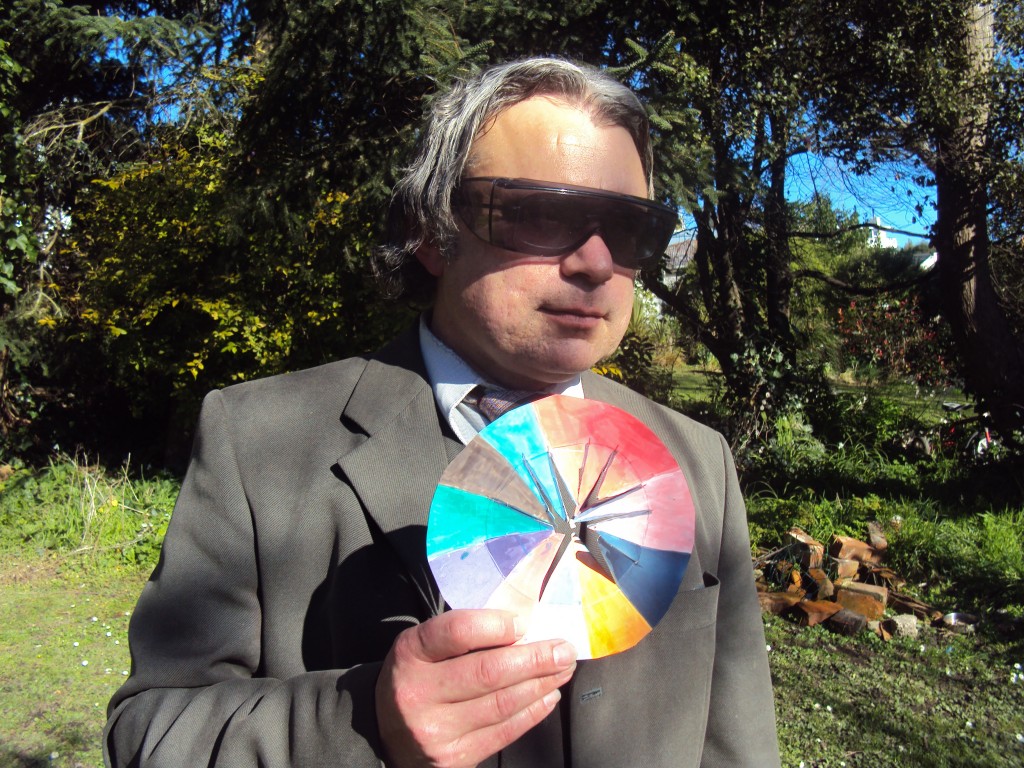
This interview could have been a lot better if the interviewer didn’t ask such boring, daft questions.